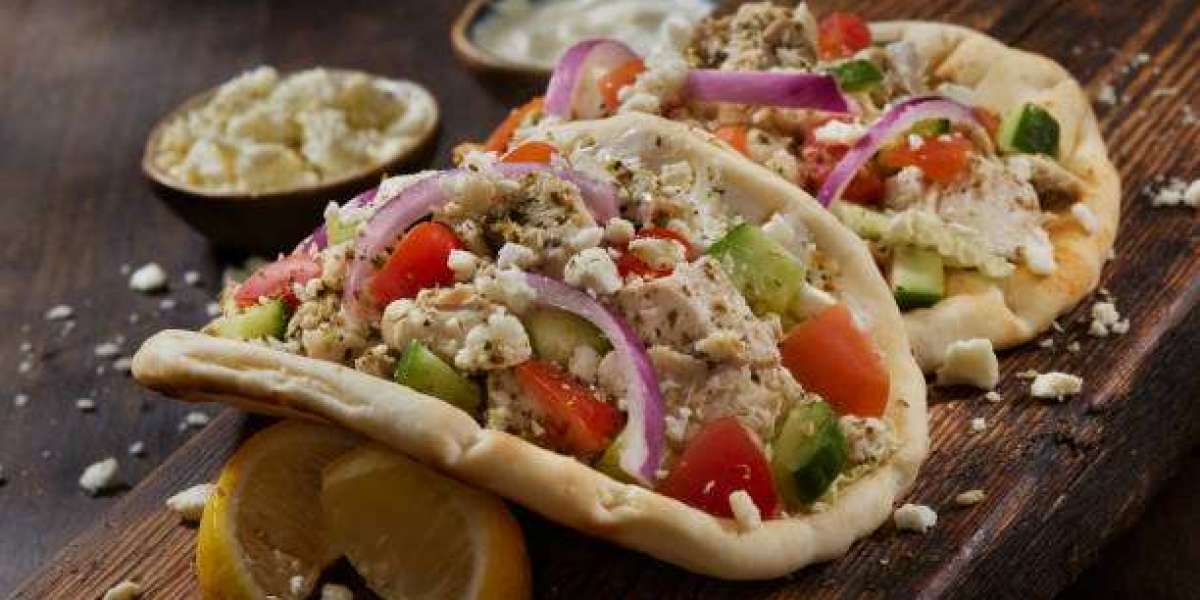Around the world, Tortilla Wrap is now a common sight in many homes and restaurants because they provide an easy and adaptable method of making a broad range of meals. Originating from Mexican cuisine, the modest tortilla wrap has developed into a global staple, used in everything from tacos and burritos to wraps and nachos. More variants of soft tortilla have arisen, each with its own distinct flavor and texture as they continue to gain popularity. This post walks you through the various varieties of tortilla covers and explains how their taste and texture affect the foods they go well with.
The Origins of Tortilla Wraps
Tortilla wraps have a long history, rooted in the cultures of Mesoamerica. Corn tortillas, in particular, were a dietary staple for the Aztecs and Mayans, made from ground maize through a process known as nixtamalization. This technique, which involves soaking and cooking corn kernels in an alkaline solution, allowed ancient civilizations to create a pliable and nutritious dough called masa.
Over time, flour tortilla evolved, with wheat flour tortillas becoming popular in northern Mexico and the southwestern United States due to European influence. Today, both corn and flour whole wheat tortilla are widely used in various culinary traditions, making them a versatile option for countless recipes.
The Traditional Corn Tortilla Wraps
Corn tortilla wraps are one of the most widely recognized forms of tortillas and are known for their distinct flavor and texture. Made primarily from ground maize, these wraps boast an earthy, slightly sweet taste and a firm, chewy texture. They are typically smaller and more rustic compared to other types of tortillas, but they remain a key ingredient in many Mexican dishes.
Texture and Flavor Profile of Corn Tortillas
Corn tortilla wraps have a firm texture that adds a satisfying bite to dishes like tacos, enchiladas, and tostadas. Their slightly rough surface helps absorb sauces and hold onto fillings, ensuring that each bite is packed with flavor.
Corn tortillas are naturally gluten-free, making them a popular choice for those with gluten sensitivities or celiac disease. Their natural taste pairs beautifully with traditional Mexican ingredients like grilled meats, beans, and fresh vegetables. While they may be less pliable than flour tortillas, warming them before use can help soften their texture and prevent breakage when wrapping.
Flour Tortilla Wraps - The Soft and Malleable Option
Flour tortilla wraps are another popular option, particularly in the United States and regions where wheat flour is more readily available. These tortillas are made from wheat flour, water, fat (such as lard or vegetable oil), and a pinch of salt, which gives them a soft and pliable texture. Flour tortilla filings are often used for making burritos, quesadillas, and wraps because of their flexibility and ability to hold large amounts of filling.
Texture and Flavor Profile of Flour Tortillas
Flour tortilla wraps are softer and more malleable than corn tortillas, making them easy to fold and wrap without tearing. They have a mild, neutral flavor that complements a wide variety of fillings, from savory meats and cheeses to fresh vegetables and spreads. The soft texture of flour tortillas makes them an excellent choice for dishes that require rolling or folding, such as tortillas or wraps.
Whole Wheat Tortilla Wraps a Healthier Alternative
For those looking for a more nutritious option, whole wheat tortilla wraps offer a healthier alternative to traditional flour tortillas. Made with whole wheat flour, these wraps provide more fiber, vitamins, and minerals than their white flour counterparts. They are an excellent choice for individuals seeking to incorporate more whole grains into their diet without sacrificing the convenience and versatility of a tortilla wrap.
Texture and Flavor Profile of Whole Wheat Tortillas
Whole wheat Mexican wraps have a slightly denser texture and a nuttier, heartier flavor than white flour tortillas. The coarser texture provides more chew, making them ideal for wraps filled with robust, flavorful ingredients like grilled vegetables, lean proteins, and healthy fats such as avocado or hummus.
Spinach and Herb Tortilla Wraps
Spinach and herb tortilla wraps are a colorful and nutritious alternative to traditional wraps. These tortillas are typically made with flour and infused with spinach or a variety of herbs, giving them a vibrant green hue and an extra dose of vitamins and minerals. While the flavor of spinach is relatively mild, these wraps add a subtle earthy taste and can enhance the visual appeal of your meal.
Texture and Flavor Profile of Spinach Tortillas
Spinach healthy wraps are soft and flexible, similar to flour tortillas, making them easy to roll and fold. Their texture is slightly smoother, with a subtle hint of spinach that doesn’t overpower the other ingredients in your dish.
Low-Carb Tortilla Wraps
Low-carb gluten free tortilla have gained popularity in recent years, especially among individuals following ketogenic or low-carb diets. These wraps are typically made with alternative flours, such as almond flour, coconut flour, or flaxseed meal, which reduces the carbohydrate content while maintaining a flexible texture.
Texture and Flavor Profile of Low-Carb Tortillas
Low-carb grilled tortilla can vary in texture depending on the type of flour used. Almond and coconut flour-based wraps tend to be slightly denser and more fragile than traditional flour tortillas. Despite their lower carb content, these wraps still provide a satisfying chew and can hold up well to various fillings.
Gluten-Free Tortilla Wraps for Dietary Restrictions
For individuals with gluten sensitivities or celiac disease, gluten-free tortilla wraps offer a safe and delicious alternative. These tortillas are made using gluten-free flours, such as rice flour, tapioca flour, or chickpea flour, providing a similar texture to traditional wraps without the gluten.
Texture and Flavor Profile of Gluten-Free Tortillas
Gluten-free tortilla wraps can vary in texture depending on the type of flour used. Rice flour-based wraps tend to be soft and pliable, while chickpea or other legume-based wraps may have a slightly firmer texture. The flavor of gluten-free wraps is generally mild, allowing them to pair well with a variety of fillings.
Flavored Tortilla Wraps with Bold Tastes
For those who enjoy experimenting with different flavors, flavored tortilla wraps offer an exciting twist on traditional tortillas. These wraps are often infused with ingredients like tomato, garlic, herbs, or spices to create bold, flavorful options that add an extra layer of taste to your meal.
Texture and Flavor Profile of Flavored Tortillas
Flavored tortilla sandwich generally has a similar texture to flour tortillas but with added ingredients that enhance their flavor profile. Tomato-infused wraps have a slightly tangy taste, while garlic or herb wraps add a savory element that complements various fillings.
With a wide variety of tastes, textures, and nutritional advantages to satisfy every palate and dietary requirement, the world of wraps with chicken is enormous and diverse. Every variety of wrap offers a different base for a plethora of meals, from the classic corn tortilla with its firm, chewy texture to the soft and malleable flour tortilla. There's a tortilla wrap for every taste and preference, be it low-carb, gluten-free, or just something to add some color and flavor to your meal.








